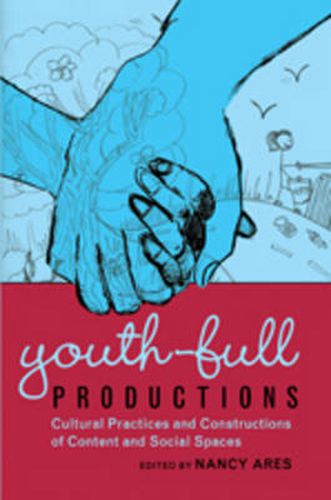Readings Newsletter
Become a Readings Member to make your shopping experience even easier.
Sign in or sign up for free!
You’re not far away from qualifying for FREE standard shipping within Australia
You’ve qualified for FREE standard shipping within Australia
The cart is loading…






The grounding concept of this book is that youth are active agents in creating cultural practices and social spaces. Drawing from disciplines including anthropology, sociology, education, and cultural studies, the chapters examine practices that youth who are members of traditionally marginalized groups develop through engagement in the varied contexts of their everyday lives. Each chapter treats communities’ language, communication and interaction patterns, and culturally derived practices as valuable resources youth bring to the tasks and situations they negotiate across time and space. The combination of chapters that fall within traditions of social and cultural foundations with those that fall within disciplinary learning-focused approaches sets this book apart. Across the chapters, notions of youth as active agents in the production of knowledge, selves, and practice are illuminated by focusing on how youth participate in construction of assemblages of historically derived practices, evolving relations of power, discourses, and new social/cultural forms and practices. The book also includes the editor’s responses to the two main sections of the work, a conversation-in-writing aimed at making explicit both what ties the chapters within the sections together and the broader implications of the combined and unique contributions.
$9.00 standard shipping within Australia
FREE standard shipping within Australia for orders over $100.00
Express & International shipping calculated at checkout
The grounding concept of this book is that youth are active agents in creating cultural practices and social spaces. Drawing from disciplines including anthropology, sociology, education, and cultural studies, the chapters examine practices that youth who are members of traditionally marginalized groups develop through engagement in the varied contexts of their everyday lives. Each chapter treats communities’ language, communication and interaction patterns, and culturally derived practices as valuable resources youth bring to the tasks and situations they negotiate across time and space. The combination of chapters that fall within traditions of social and cultural foundations with those that fall within disciplinary learning-focused approaches sets this book apart. Across the chapters, notions of youth as active agents in the production of knowledge, selves, and practice are illuminated by focusing on how youth participate in construction of assemblages of historically derived practices, evolving relations of power, discourses, and new social/cultural forms and practices. The book also includes the editor’s responses to the two main sections of the work, a conversation-in-writing aimed at making explicit both what ties the chapters within the sections together and the broader implications of the combined and unique contributions.